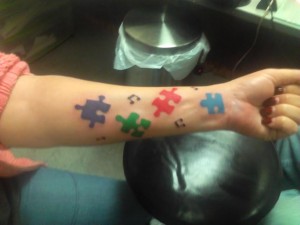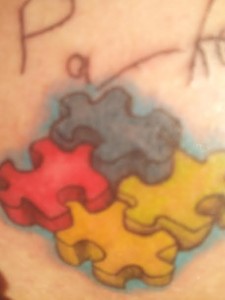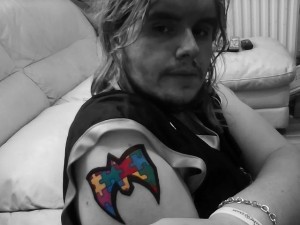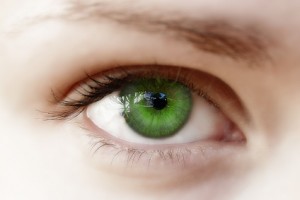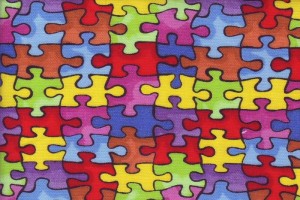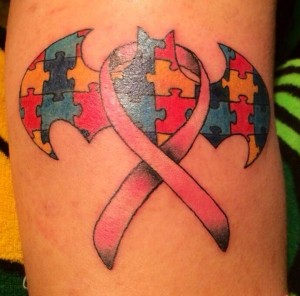
Autism Tattoo from Patty
Years ago when I started getting into both healthcare issues and social media I discovered lots of people had or were planning on having a tattoo related to a health or other condition.
There were two main reasons for this. In the case of say people with diabetes it was a useful tool to let paramedics or other healthcare professionals know about the condition in case of an accident or a diabetes induced coma.
Within the autism community on the other hand tattoo are used as a great way of raising awareness of ASD and, of course, for showing support for a loved one.
So we thought it would be great to provide a forum where our readers could share their autism tattoos and other related ASD body art.
So please feel free to post a picture of you tattoo in the comments section of this blog. If this proves a problem you can email your picture to us at info@patienttalk.org and we will post them on your behalf.
Thanks very much in advance
Shelley shares “My son is four years old and has ASD. I got this tattoo without color so after it’s fully healed my son and daughter can color the puzzle piece in with four colors. My son still doesn’t talk but has started using sign language to ask please, more, thank you and much more. I know I have only known he has ASD for a short while but no matter what I will always love him for who he is ASD and all.”
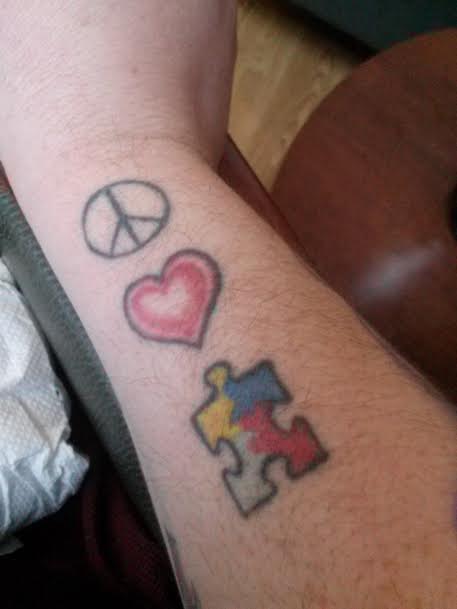
Autism Tattoo from Shelley
Terri shares ” “Here is my tattoo I got for my 7 yr old ASD son, Damien James. He is my pride and joy. I love him to the moon and back. I chose this tattoo BC I love him, ASD and all. I replaced the O with a blue puzzle piece. Its my favorite tattoo right now. I have other tattoos in the works, all Autism themed for my boy and to spread awareness and ASD love. People see my tattoos and ask questions and this one makes for great convos to explain what autism is to those who don’t understand it. My son is different, not less!!!”
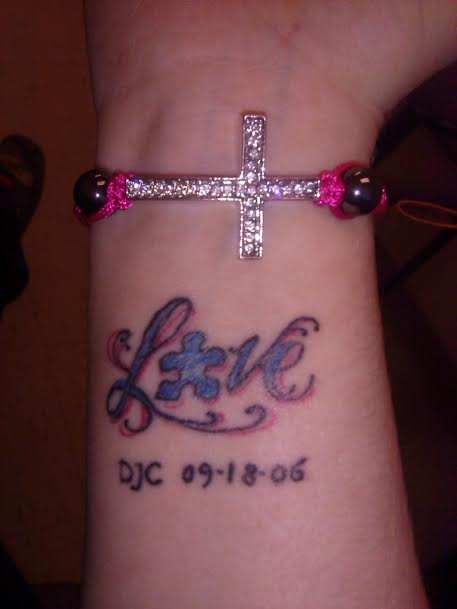
Autism Tattoo from Terri
Stephanie shares “My son is four years old and has ASD. I got this tattoo without color so after it’s fully healed my son and daughter can color the puzzle piece in with four colors. My son still doesn’t talk but has started using sign language to ask please, more, thank you and much more. I know I have only known he has ASD for a short while but no matter what I will always love him for who he is ASD and all.”
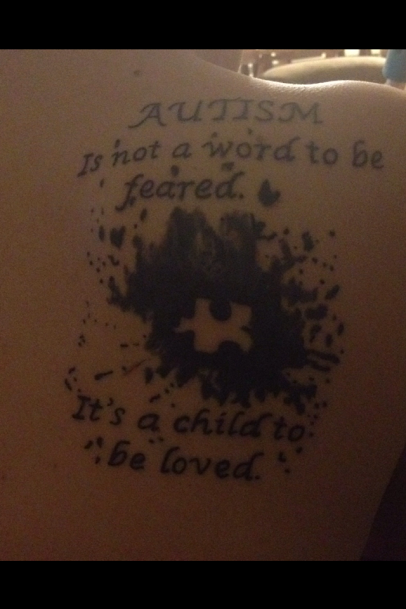
Autism Tattoo from Stephanie
